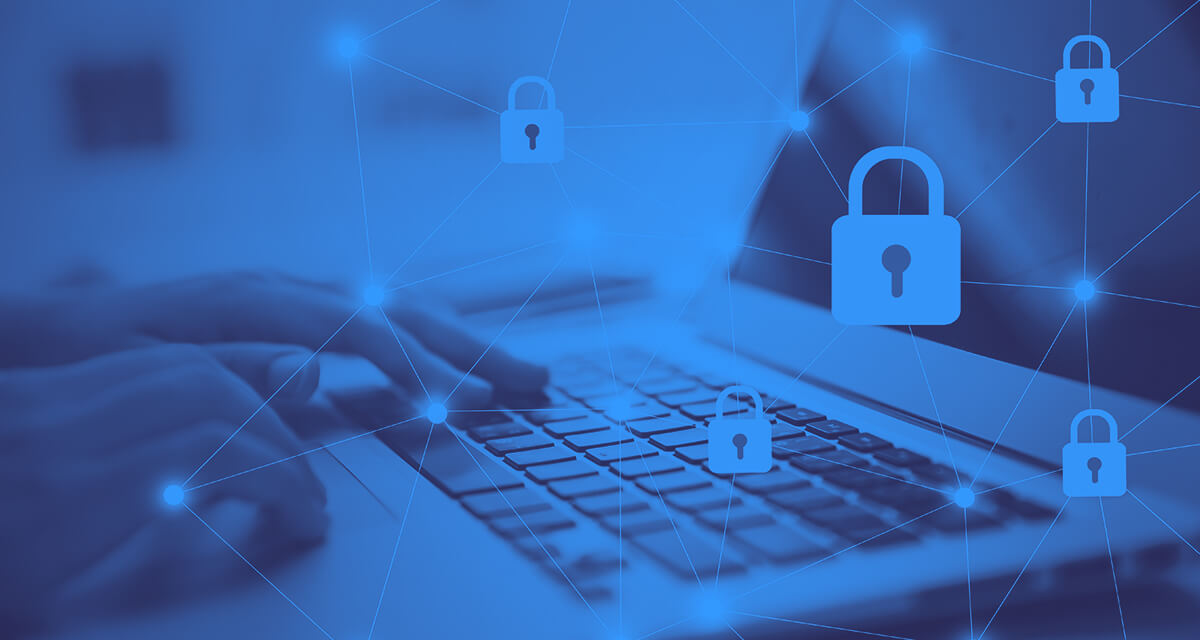

The constant advancements in the markets promote the use and growth of the latest technologies. Employers and entrepreneurs are looking to find the best solutions designed to be impressively manageable with the security of the useful information of a business. A type of data protection known as endpoint encryption is increasingly becoming useful for this purpose.
Endpoint encryption is software-based encryption that will protect the data stored with its specific encryption keys and encrypted networks. It enforces encryption policies within an organization to ensure optimum performance on several network endpoints.
Before learning about the key management strategies, principles, and types, it is important to understand what endpoint encryption truly is below.
Endpoint Encryption is a sophisticated tool for providing endpoint security to your corporate data that might be implied on multiple endpoints. It is an authentication-based system that strictly permits authorized personnel to access the information appropriately by restricting unauthorized users’ approach on endpoints like devices, hardware, and files.
It also ensures a coherent process of sharing and transferring data over great distances by avoiding data breaches and providing a comprehensive framework of encryption algorithms.
Since the onset of the pandemic, a vast proportion of almost every business has been shifted online, which has obliged enterprises to keep their information secured. The employers and employees access company accounts from different endpoints. Endpoint encryption makes sure to automatically allow the appropriate users to interact with the network while simultaneously monitoring the interference of bogus and misleading them away from confidential data.
Information can be encrypted through various techniques. The priority of every business is to create an environment that assists and ensures an efficient service that will protect data stored from both ends. The ability to deal with a plethora of endpoints consistently at the same time is what highlights the great significance of endpoint encryption.
Rivest, Shamir, Adleman (RSA), and Advanced Encryption Standard-256 (AES-256) are the two most commonly used strategies for managing endpoint encryption.
RSA is an essential method of encrypting your data over the internet. Also known as asymmetric encryption, RSA uses two interlinked keys to decrypt each other. The public key is shared, while the remaining private key is kept secret. Despite being one of the oldest known algorithms for applying endpoint security to your correspondence, it still has an immense amount of importance in effectively maintaining the protocol and protect data.
AES-256 is a much more advanced and acknowledged software-based data encryption used by the government for advanced endpoint encryption solutions. It is a symmetrical endpoint encryption solution that will protect sensitive data through one single key, unlike RSA. Its symmetric encryption standard can convert any data into ciphertexts with keys ranging from 128 to 256 bits; AES can easily transmit sensitive data from one place to another. Therefore their device encryption remains incredibly useful when dealing with USBs, CDs, and other removable media.
Since government officials are dealing with it, It also deals with a higher risk and threat and efficiently avoids any data breach.
These were just the basic strategies and guidelines of how an endpoint encryption software commences its process of protecting confidential data and how the authentic receiver is going to get access by overriding the data security. Now we will look into the types of encryptions that integrate different endpoints and maintain the organization’s security infrastructure through encryption solutions.
The two types of endpoint encryptions are full disk encryption and file encryption:
Full Disk Encryption
Full disk encryption or FDE is an automatically encrypted software that operates by completely protecting the devices from different unauthorized users. Full disk encryption makes use of the entire operating system apart from RAM and invents a key that remains stored in the memory and allows access in the future once the user has been authenticated.
Full disk encryption makes sure to authorize any interference with its self-generated key as well. In cases of lost or stolen devices like laptops, mobile devices, or PCs, the data would still be available within the system; however, the FDE will not approve any authentication to ponder upon the confidential information until the secret code is decrypted by its key.
It is an entirely automated solution that serves as a barrier for not just your sensitive data but also considers the privacy of your personal device as a whole.
File Encryption
The other type of endpoint encryption is known as file or folder data encryption. Unlike full disk encryption, file encryption is used for certain files, folders, or even removable media devices.
In the FDE, it was necessary to be first authorized and then use and access a certain operating system. File encryption works on a similar principle, providing much more flexible authentication than its counterpart.
File encryption allows you to operate smoothly without having the authority of an encrypted file or a folder and is only concerned with trafficking the data stored.
As it offers convenient data security over certain files within the system, these files can easily be sent and received via email. An individual to access the encrypted email must have appropriate decryption software and an encryption key in the form of a password that would have been provided to them by the sender.
This will confirm the authenticity of the receiver and will successfully allow them to make changes to the stored data and protect data.
Being a highly employed business comes with a cost of its own. An organization that is incredibly approachable and generates profits to a great extent is going to put cooperation in the limelight. Businesses with an increasing number of employees and customers should consider the endpoint encryption of their sensitive data, which might be accessible from multiple endpoints simultaneously.
Research-based companies like the pharmaceutical industry or software developing companies are equipped with highly advanced technologies that help them to achieve their demands within the deadlines.
Their research is of high value and must be kept from the public eye to better stand against their competitors. Data protection from endpoints gives them an upper hand in maintaining privacy as their private data remains encrypted while constantly being operated at various endpoints.
Without endpoint protection, the system is open to all types of cyberattacks from every direction. The leakage of delicate information will create a number of unfavorable circumstances not just for the business itself but also for the legitimate users and users who trusted them with their personal preferences. Your financial advisers’ loyalty would also be tampered with, and your reputation would be severely damaged.
Apart from endpoint encryption, there are various techniques like firewalls, malware detection, and intrusion prevention that high-tech companies use to secure their valuable data. Integrating endpoint encryption would be equivalent to adding one final layer of security strategy.
It further eradicates any chances of a security breach which might result in negative profit and a loss of financial and personal data over the entire network.
Endpoint Encryption is a fundamental component of any enterprise because its primary purpose is to maintain the protocol of data stored by neglecting any attempt at security breach. Encryption technologies offer several key benefits, including the following:
Enables Access Remotely
This encryption makes you available and approachable to your secured data anywhere at any time. It is highly automated that is processed entirely within an organization and making it a key available to every employee even if they prefer to work online. In the case of device theft like mobile phones or laptops, the information would remain hidden from unauthorized users and could easily be accessed from a new device with the same key.
Offers A Localized Key
Apart from just protecting the data from all ends, it assists all the users by providing a local key. Within an enterprise, it provides access to anyone who might need to work on the stored data. By allowing the other authentic users to communicate within the system and participate in informative discussions, the encrypted network can become a platform for aspiring members to come up with evaluated ideas that would benefit the organization.
Provides Immediate Reports
One of the most popular features of an endpoint encryption system is its ability to deal with multiple devices. By operating simultaneously at several locations across the network, it makes sure to encrypt data and maintain and keep a check and balance of incorrect authentication attempts and every individual.
It tracks the time of entering and accessing the data and saves the changes made before leaving the network of all the users, and compiles a comprehensive report of every operation that took place.
Protects Qualified Information
The information and the communication that is shared between the governments or the payment card companies that store the financial information of millions of people at the same time is highly confidential. Without endpoint encryption, there is always an increased risk of such type of data falling into the wrong hands.
By scrambling data, endpoint encryption makes sure to eliminate data theft by making it unreadable for anyone who somehow manages to break through. Without the accurate decryption key, the users data would make no sense.
Eliminates Human Error
Being completely automated comes with its own advantage, and possibly the most impactful is how endpoint encryption completely erases the chances of manual errors. Manually operated encryptions can very easily be decrypted, which would result in a heavy loss of personal and financial data, and the exposed surface of any business would brutally affect its reputation within the market. Endpoint encryption works for safety across all aspects through its complex system of encryption algorithms.
Boosts Productivity
Without the concern of any sort of data breaches through endpoint encryption, the company would be encouraged to increase its development and research in order to cater to a greater number of customers. It provides businesses an opportunity to showcase their services and products at a much bigger level by improving their endorsements and advertisements.
This helps significantly in achieving maximum efficiency within the business, and the appropriate acknowledgment creates a strong range of customer loyalty.
With an increase in the scale of business, the chances of your sensitive information getting jeopardized by a third party and malicious interference have also increased. The availability of your network over a wider range is not going to prove fruitful until it has been incorporated with trusted endpoint security.
To enforce encryption policies is to initiate the safety protocol of your valuable information in the most convenient manner and deny any wrongdoings and misconduct with your data through its encryption algorithms.
